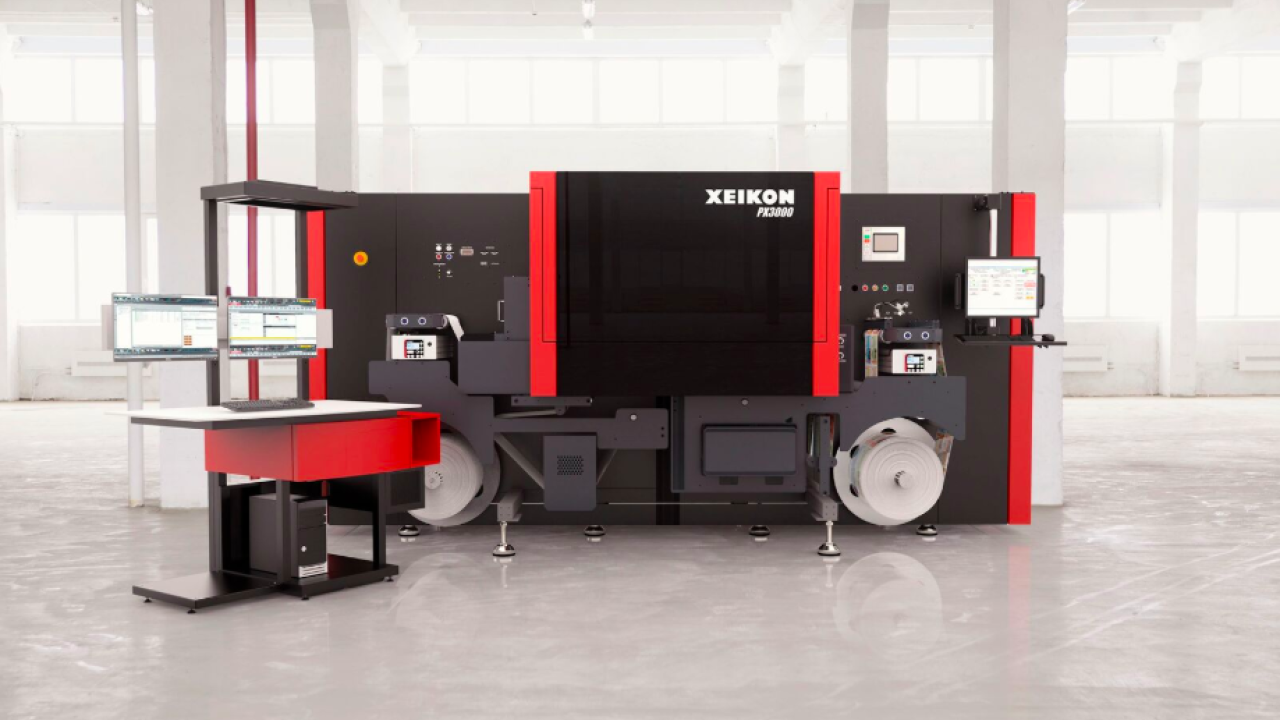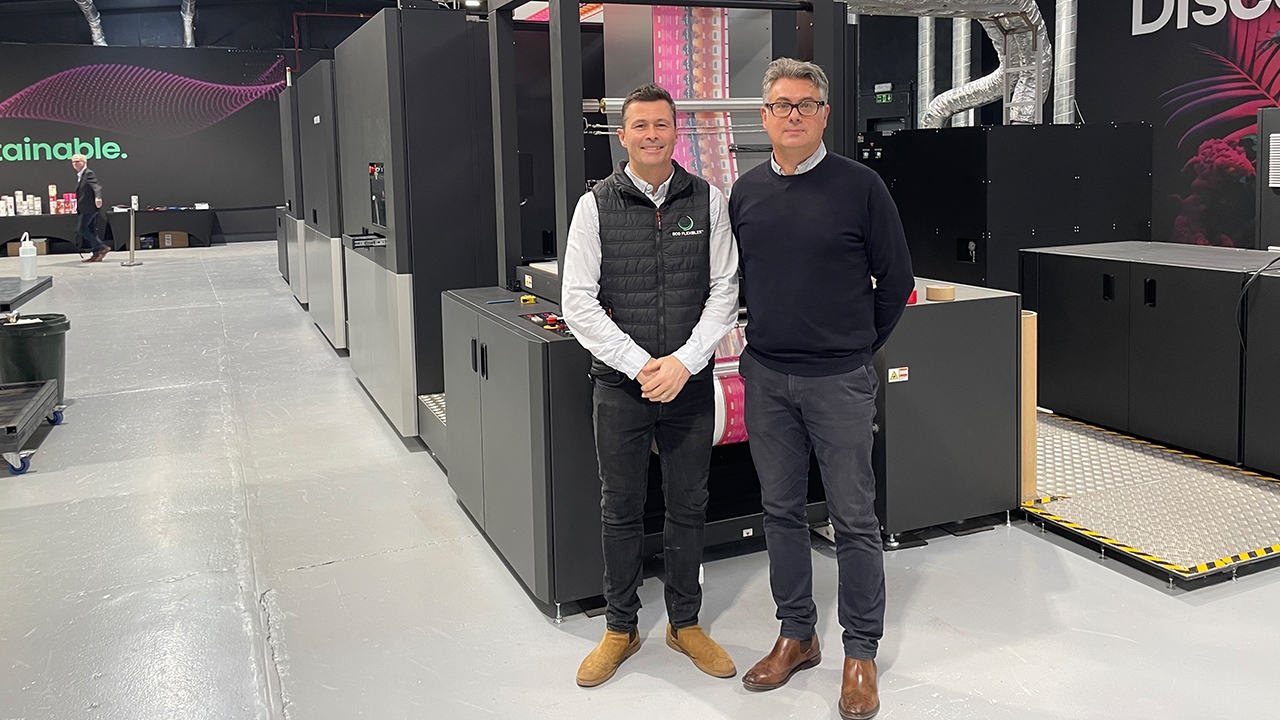Xeikon increases digital penetration

These developments have established Xeikon as a major player in the UV inkjet label printing market, adding Jetrion’s 230-strong install base to its customer list, in addition to the 10 Panther models now sold. Adding dry toner machines, Xeikon now has a total install base of over 700 label presses.
‘If you look at Xeikon’s position before inkjet, we were number two in the digital label printing market,’ says Filip Weymans, vice president of marketing. ‘We have a dedicated sales and service organization to get ourselves into this position, but occasionally you need to reflect on your technology mix and ask yourself if you have the right offering to allow customers to keep buying from you, and buy more in the future. Our analysis came to the conclusion that the core components of inkjet [printheads, etc] are quite mature. UV inkjet also delivers complementary benefits to dry toner, which excels in applications where food safety is paramount. UV inkjet excels in terms of resistance and durability.’
‘The beauty – and complexity – of the label industry is its diversity of applications and requirements,’ continues Weymans. ‘In certain markets, such as health and personal care, where you are printing on synthetic materials, end users appreciate the tactile look and feel achieved with UV inkjet. Conversely, for high-end markets like wine and spirits, where you are printing on open, porous, natural papers, printing using any liquid-based process can cause issues with the ink being absorbed, causing deformation of dots and affecting quality. This is worse with UV inkjet than UV flexo, as the viscosity of the ink is six times lower to allow it to pass through the inkjet nozzles. This is the nature of the technology, and not something that can be overcome. It also contributes to dry toner and UV inkjet being complementary technologies. This was a driving factor for us as we strive to lead UV inkjet in digital label printing as we do with dry toner.’
Sustainable technology
Weymans notes that while Jetrion is viewed as a mature platform, it is still recording growth in terms of print volume, ‘which is very encouraging.’
‘Assembling a UV inkjet press is what many can do but building a UV inkjet press that delivers consistent, high quality output is something else,’ he states. ‘It takes effort to service these systems. You also need to be developing the next generation of print engine, workflow, ink, services, converting, embellishments, etc, and having an established install base helps with funding and in giving direction to continuous innovation.
‘It requires a company of a certain size to be able to provide this. There is still a lot of room for growth in inkjet but there will be further consolidation among suppliers. There are smaller companies selling machines without the required resources, such as a service network living up to the expectations of a digital business.
‘EFI concluded that its resources were best deployed elsewhere. As EFI was the first to industrialize UV inkjet for label printing, it made sense for us to buy the number one in a market where we want to be a leader. This includes service engineers dedicated to the Jetrion platform, which boosts our existing sales and service teams around the world. For us and our customers, this a tremendous advantage.’
Xeikon’s desire to further its position in UV inkjet label printing has seen the Panther portfolio modified to match the requirements of Jetrion customers, with PX2000 having a printing width of 220mm, equivalent to the Jetrion 4830 and Jetrion 4900, and PX3000, at 330mm, matching the Jetrion 4900-330 and Jetrion 4950.
In the future, Xeikon will also look to break into new areas with inkjet, according to Weymans, namely flexible packaging and corrugated, although they will require a different platform to its current offering.
Weymans is confident about the future of Xeikon and the digital label market. ‘With our selection of technologies, we are able to engage with customers and advise them on the correct printing technology, workflow system, finishing equipment and embellishment tools for their production, while being able to serve them at their location across the globe. We see a great deal of opportunities coming towards us.’
Stay up to date
Subscribe to the free Label News newsletter and receive the latest content every week. We'll never share your email address.


